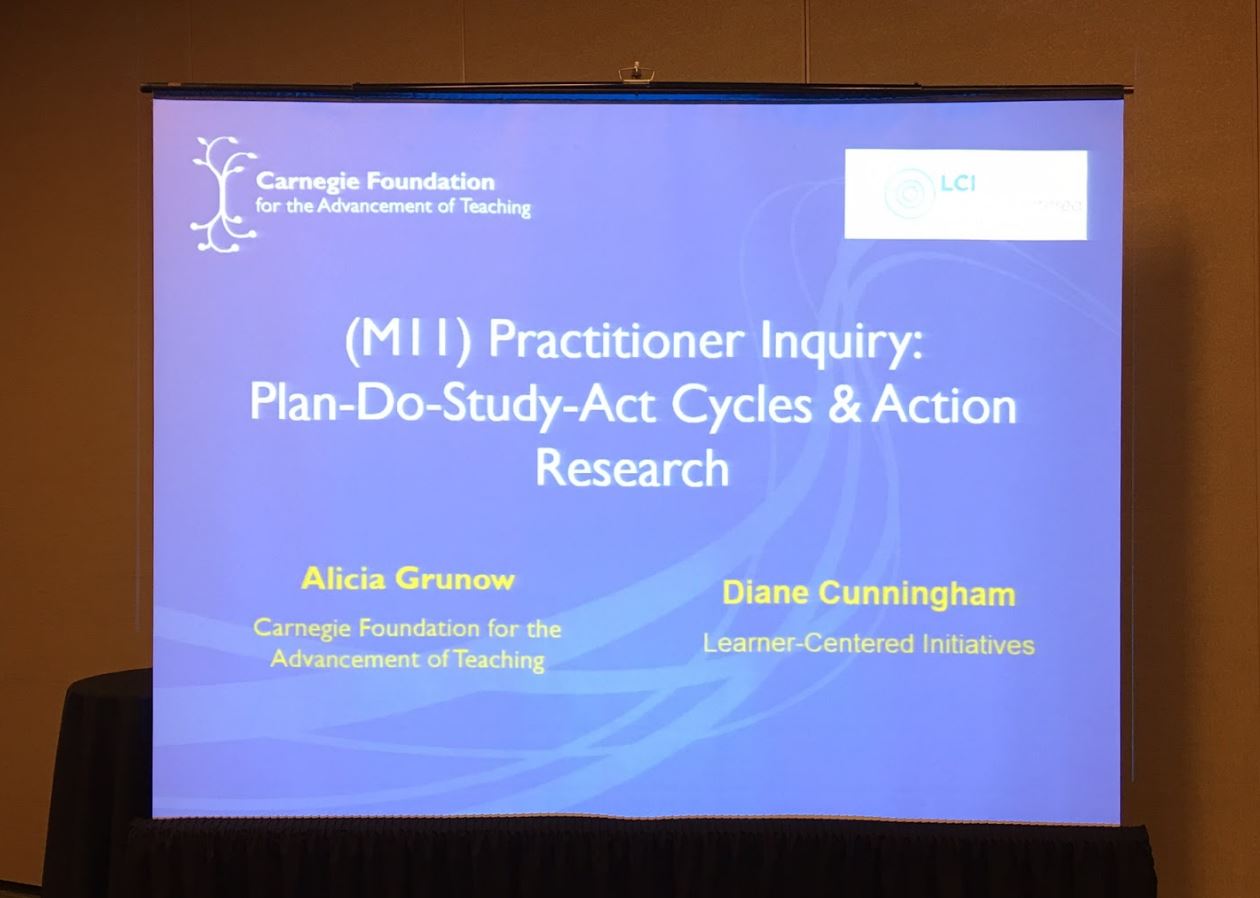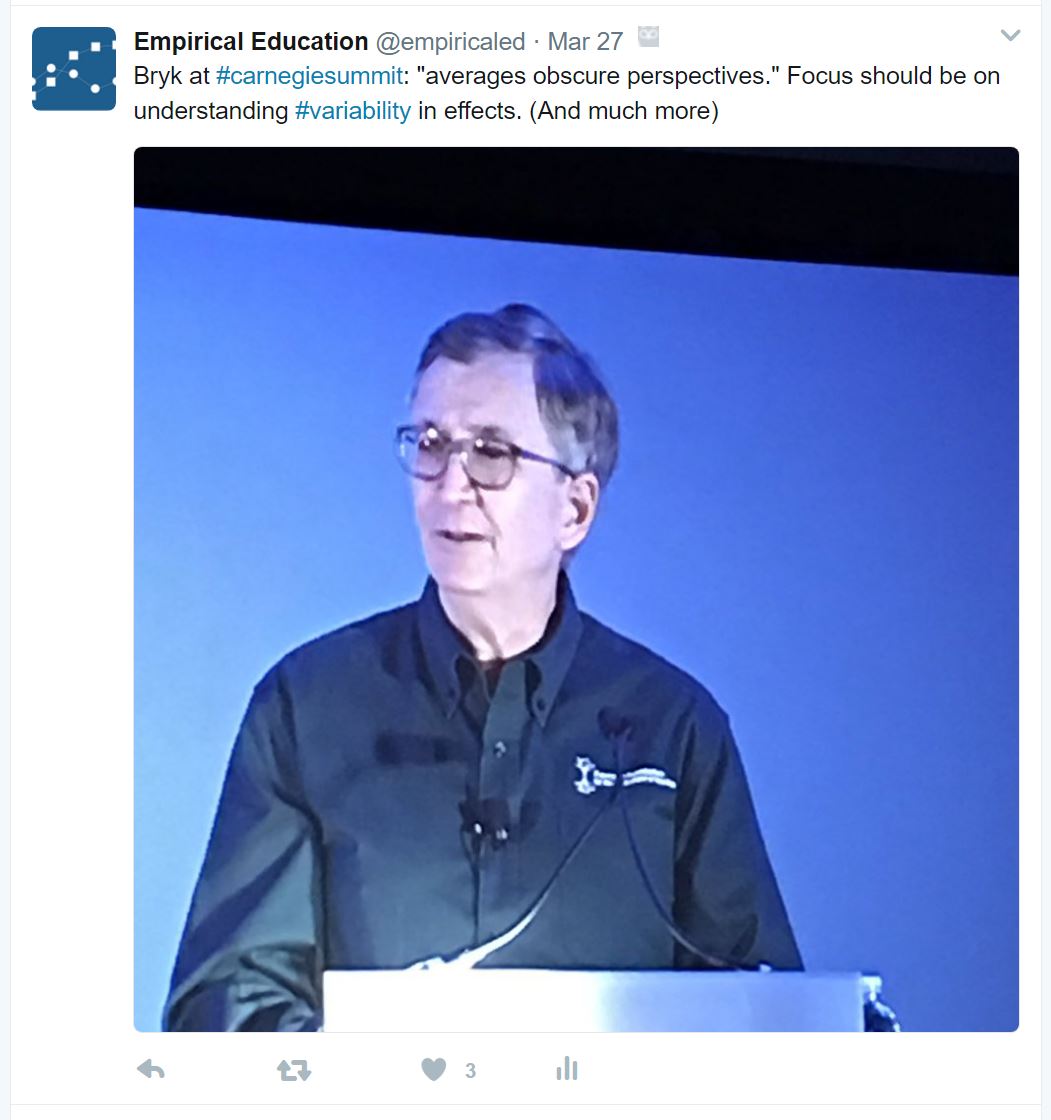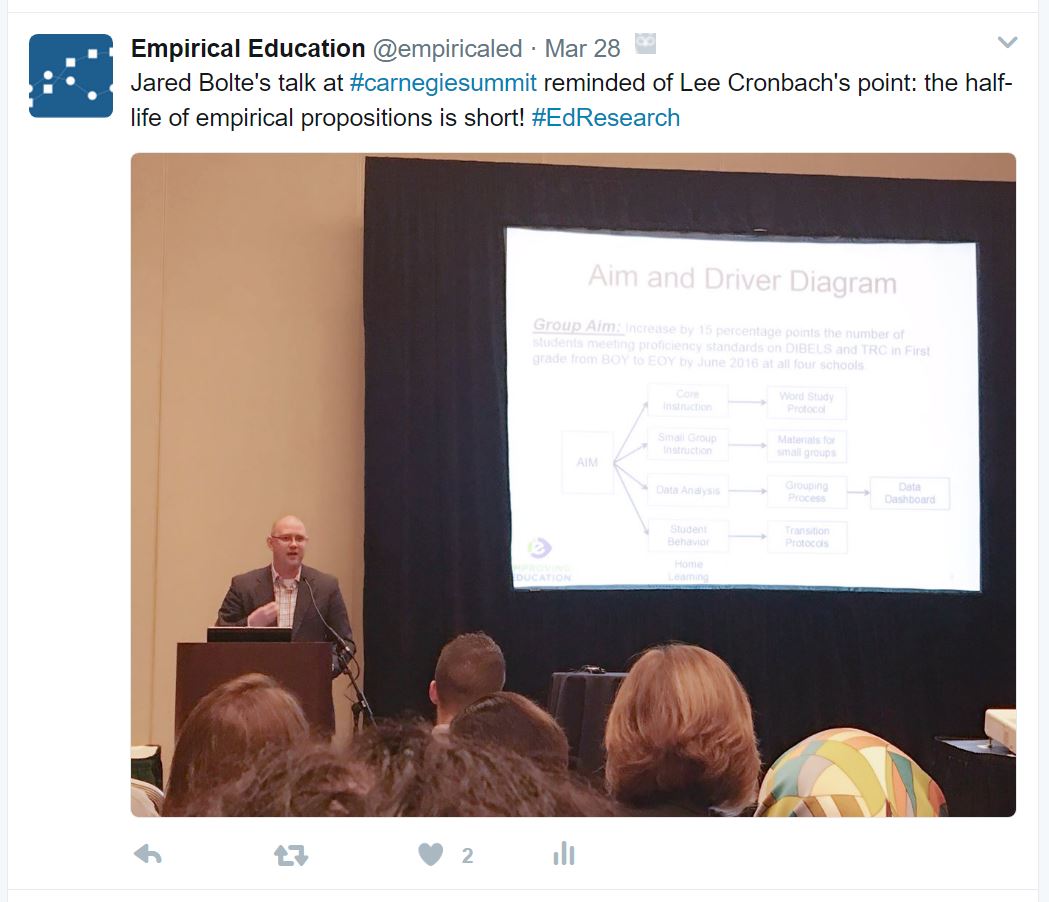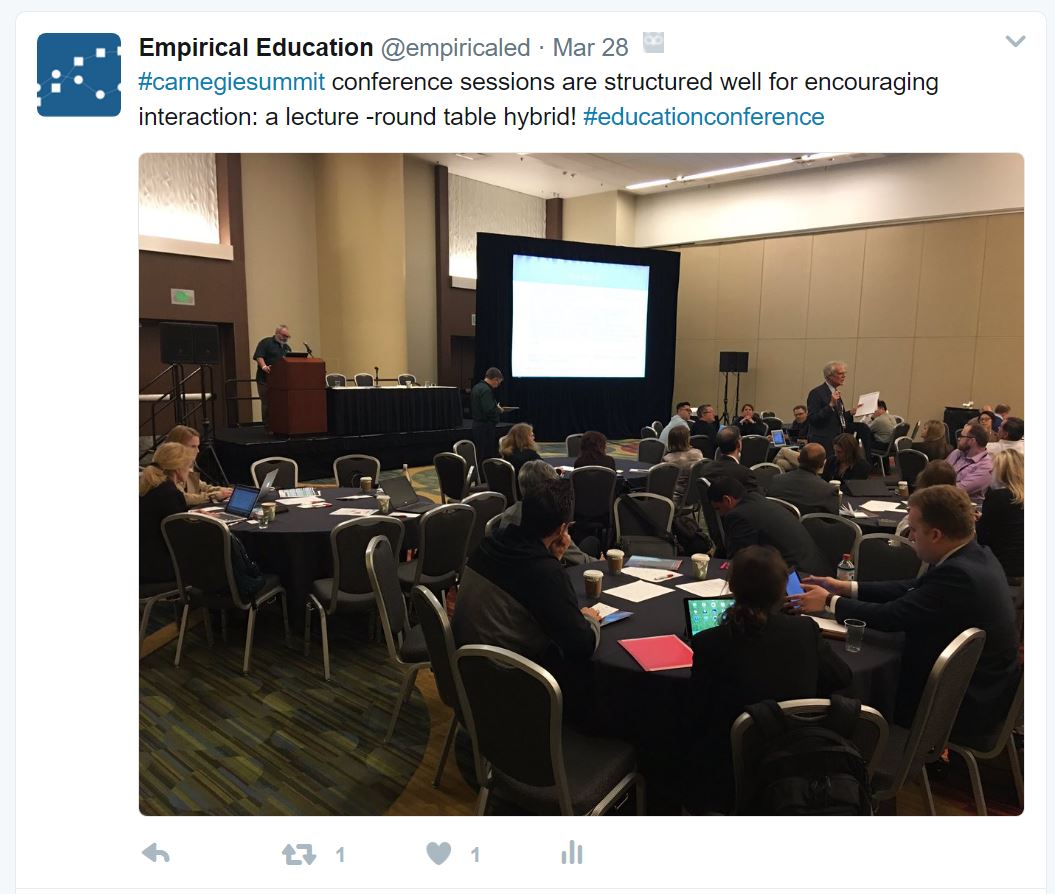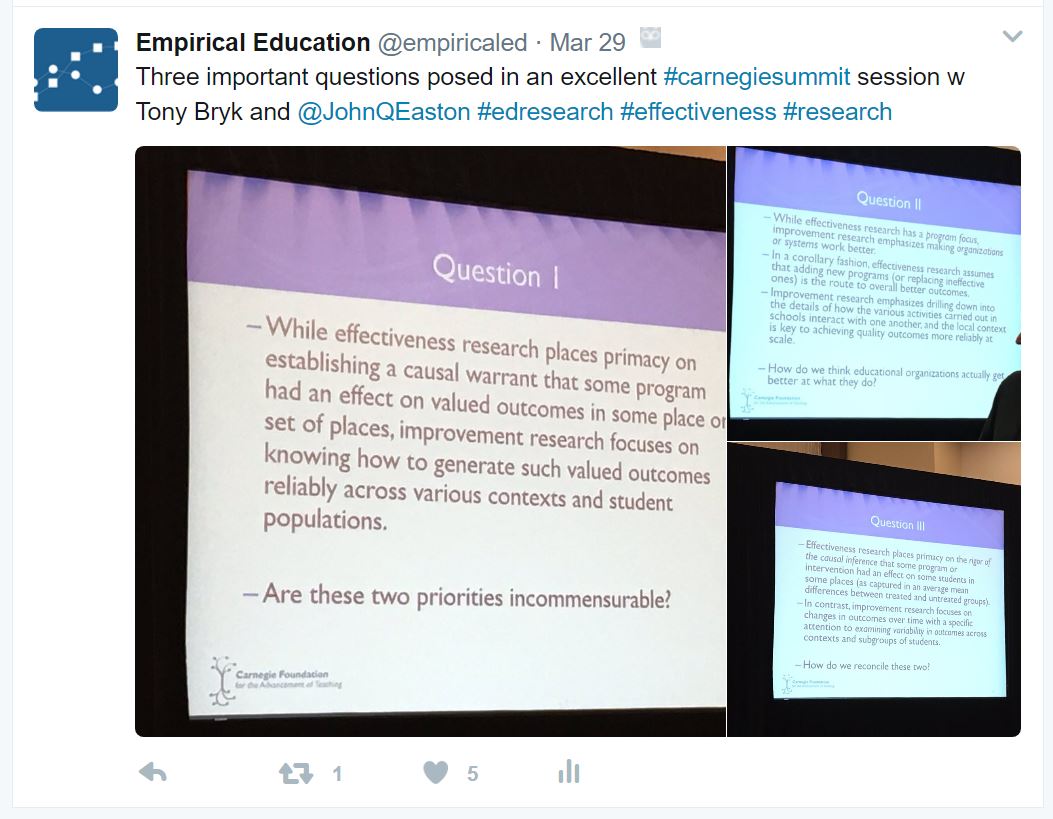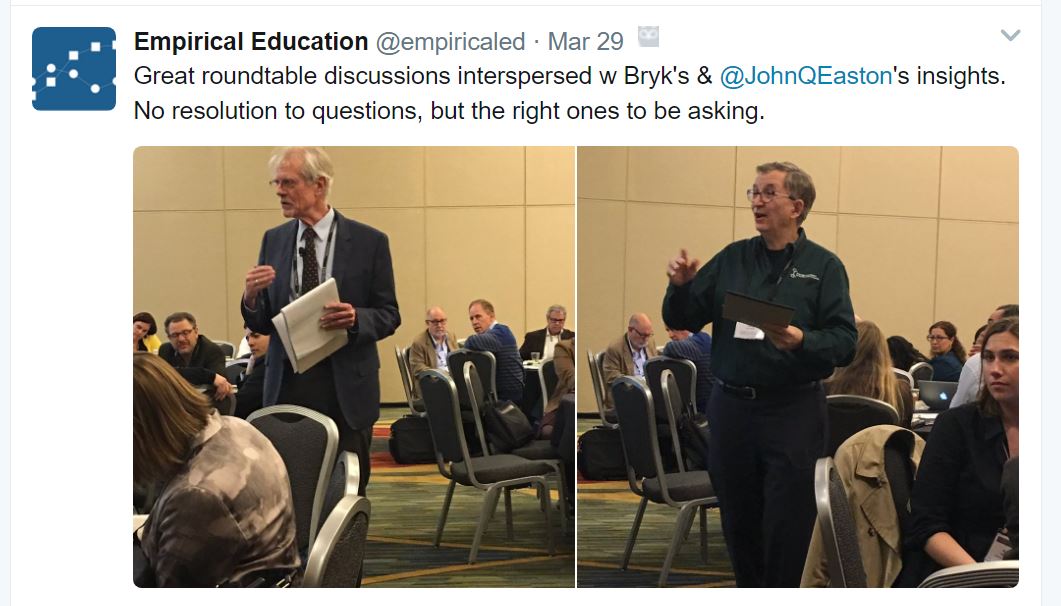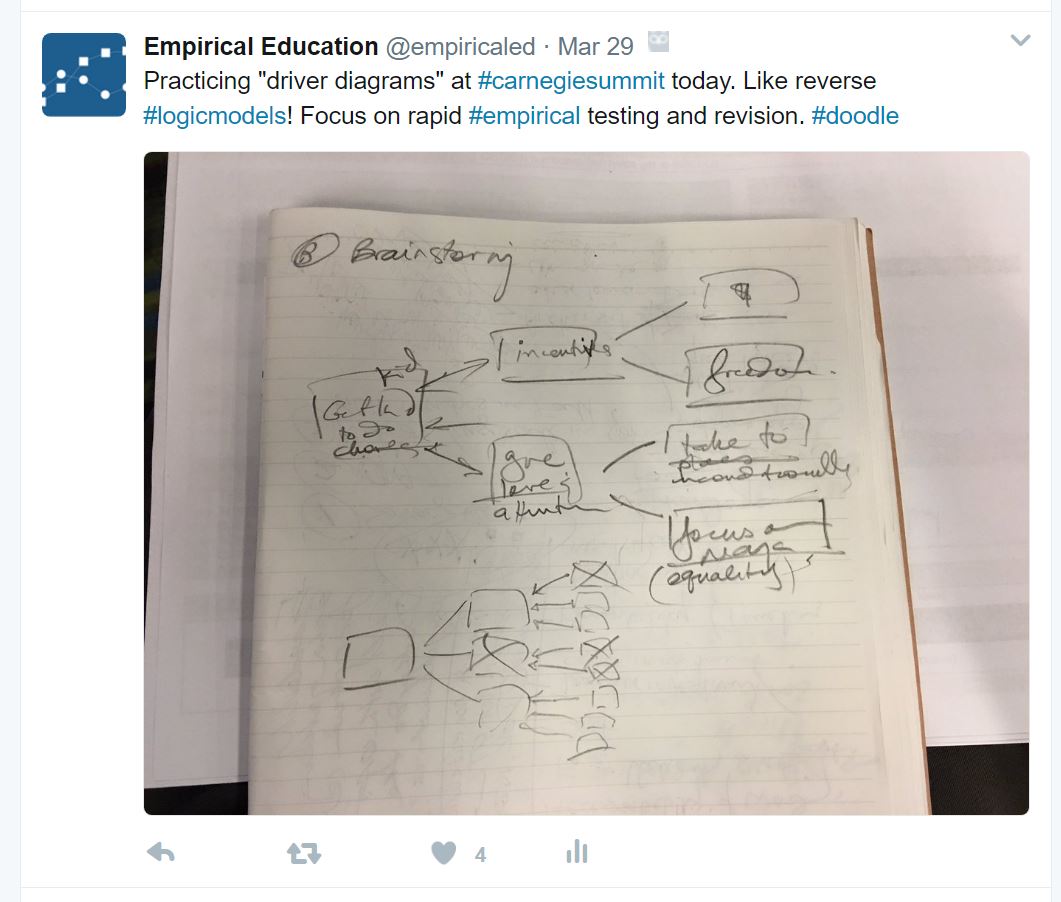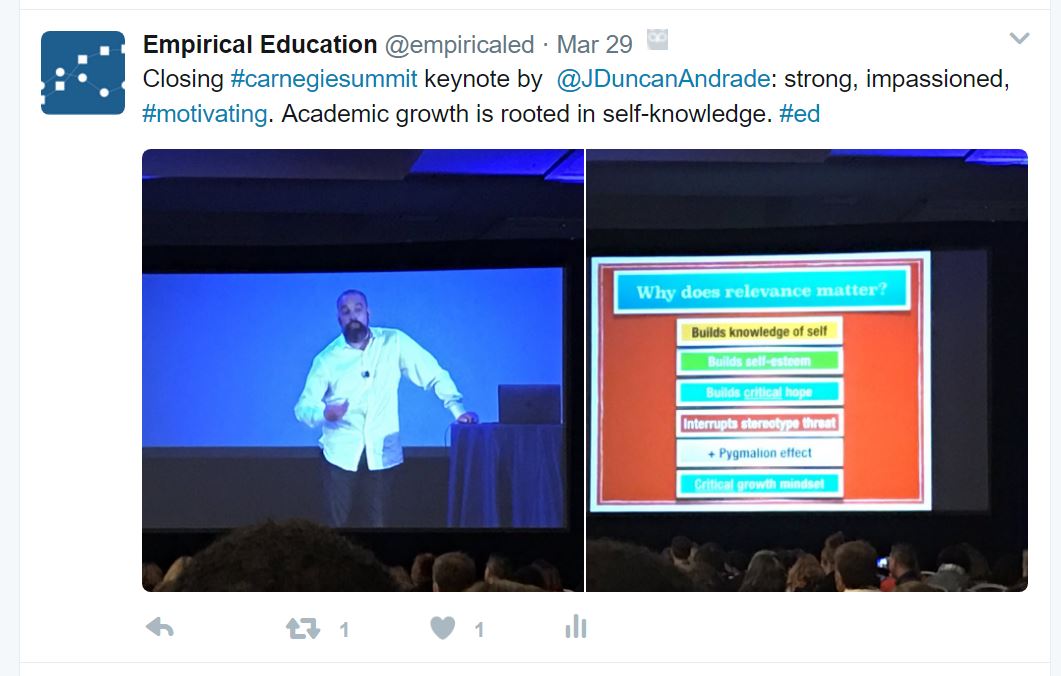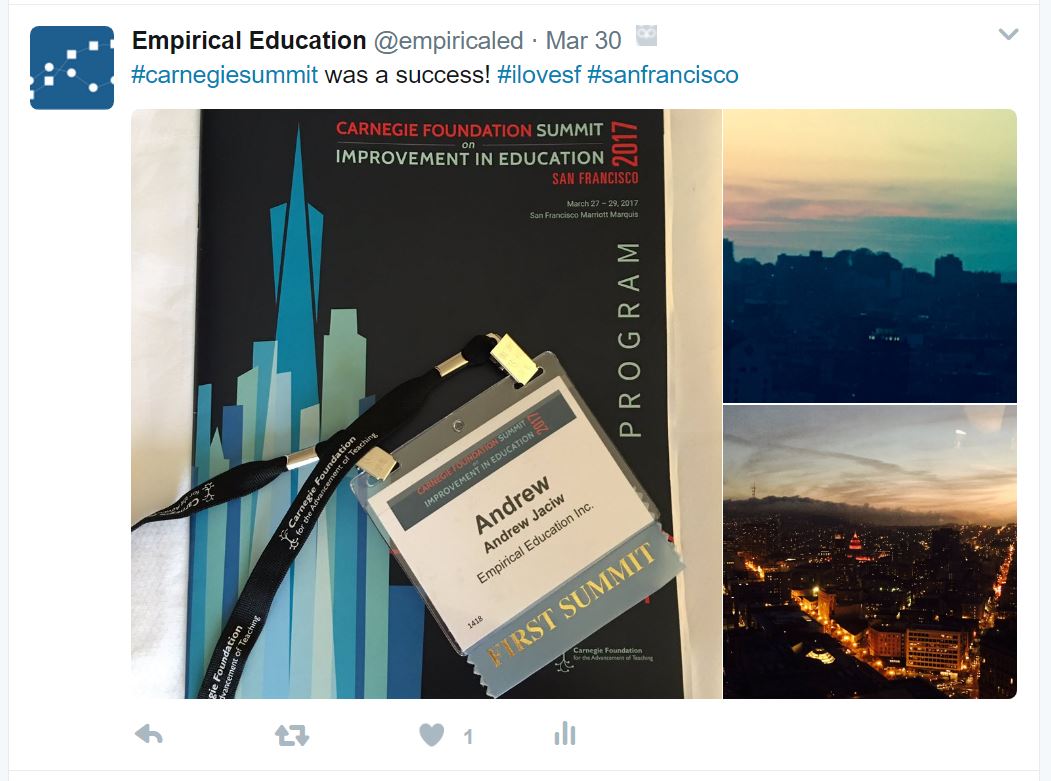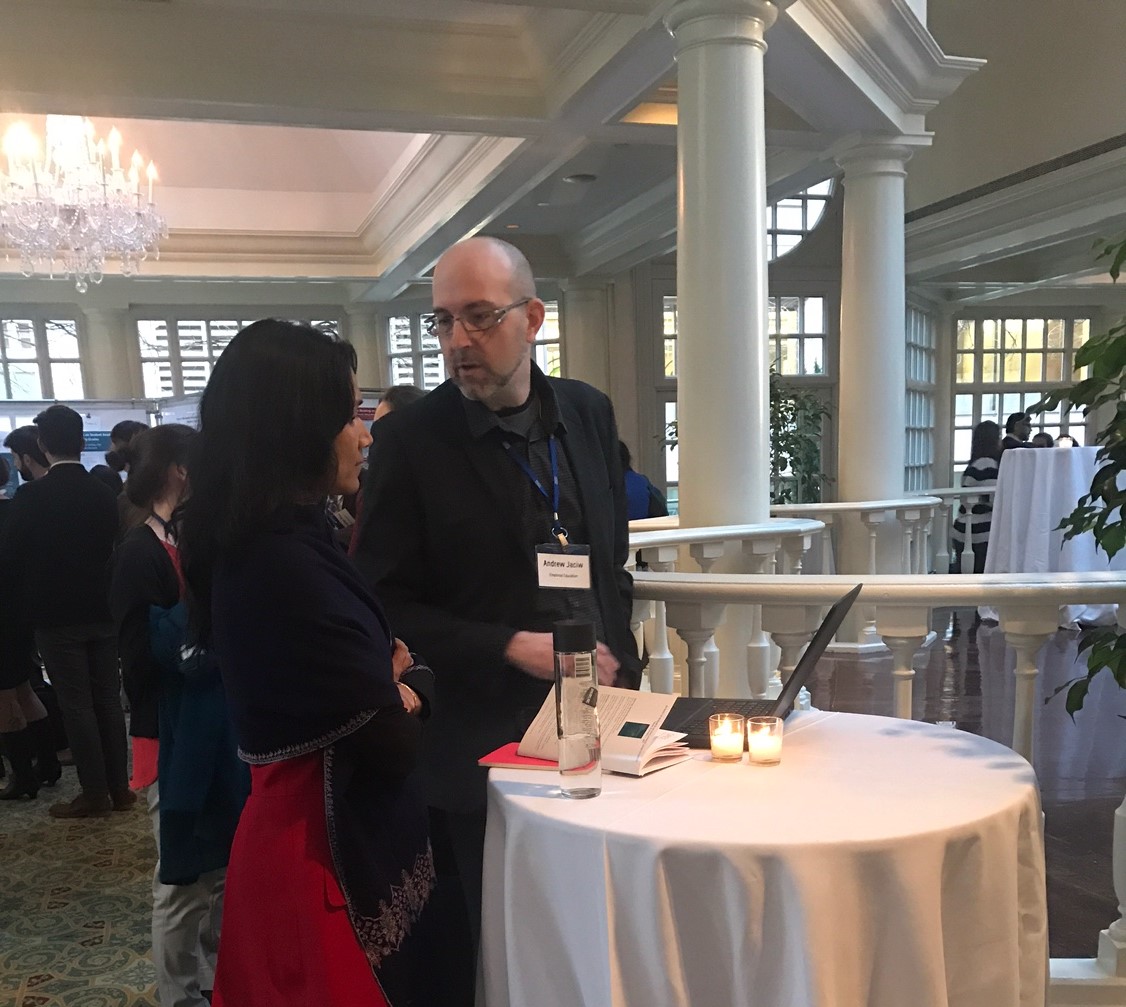Carnegie Summit 2017 Recap
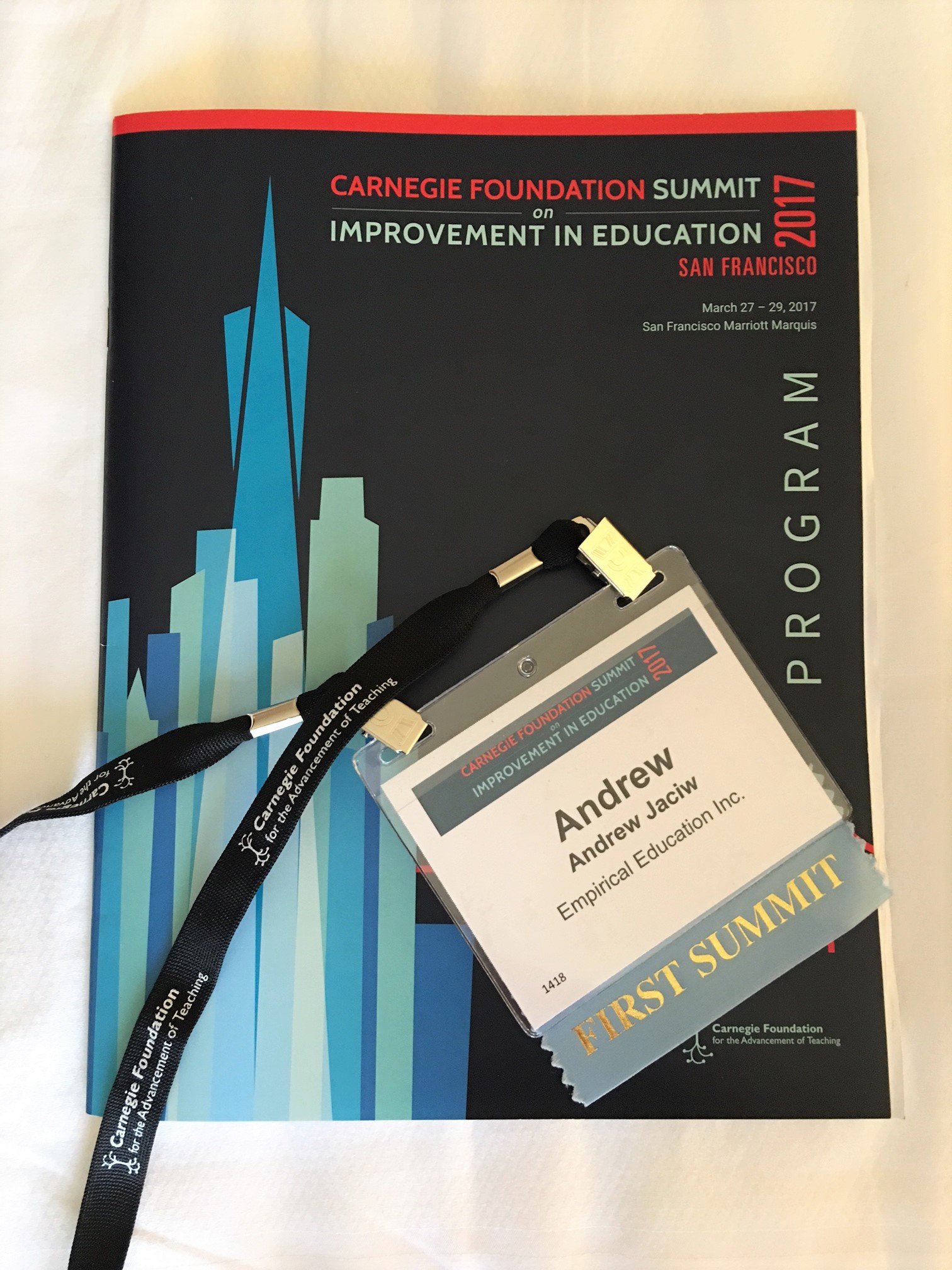
If you’ve never been to Carnegie Summit, we highly recommend it.
This was our first year attending Carnegie Foundation’s annual conference in San Francisco, and we only wish we had checked it out sooner. Chief Scientist Andrew Jaciw attended on behalf of Empirical Education, and he took over our twitter account for the duration of the event. Below is a recap of his live tweeting, interspersed with additional thoughts too verbose for twitter’s strict character limitations.
Day 1
Curious about what I will learn. On my mind: Tony Bryk’s distinction between evidence-based practice and practice-based evidence. I am also thinking of how the approaches to be discussed connect to ideas of Lee Cronbach - he was very interested in timeliness and relevance of research findings and the limited reach of internal validity.
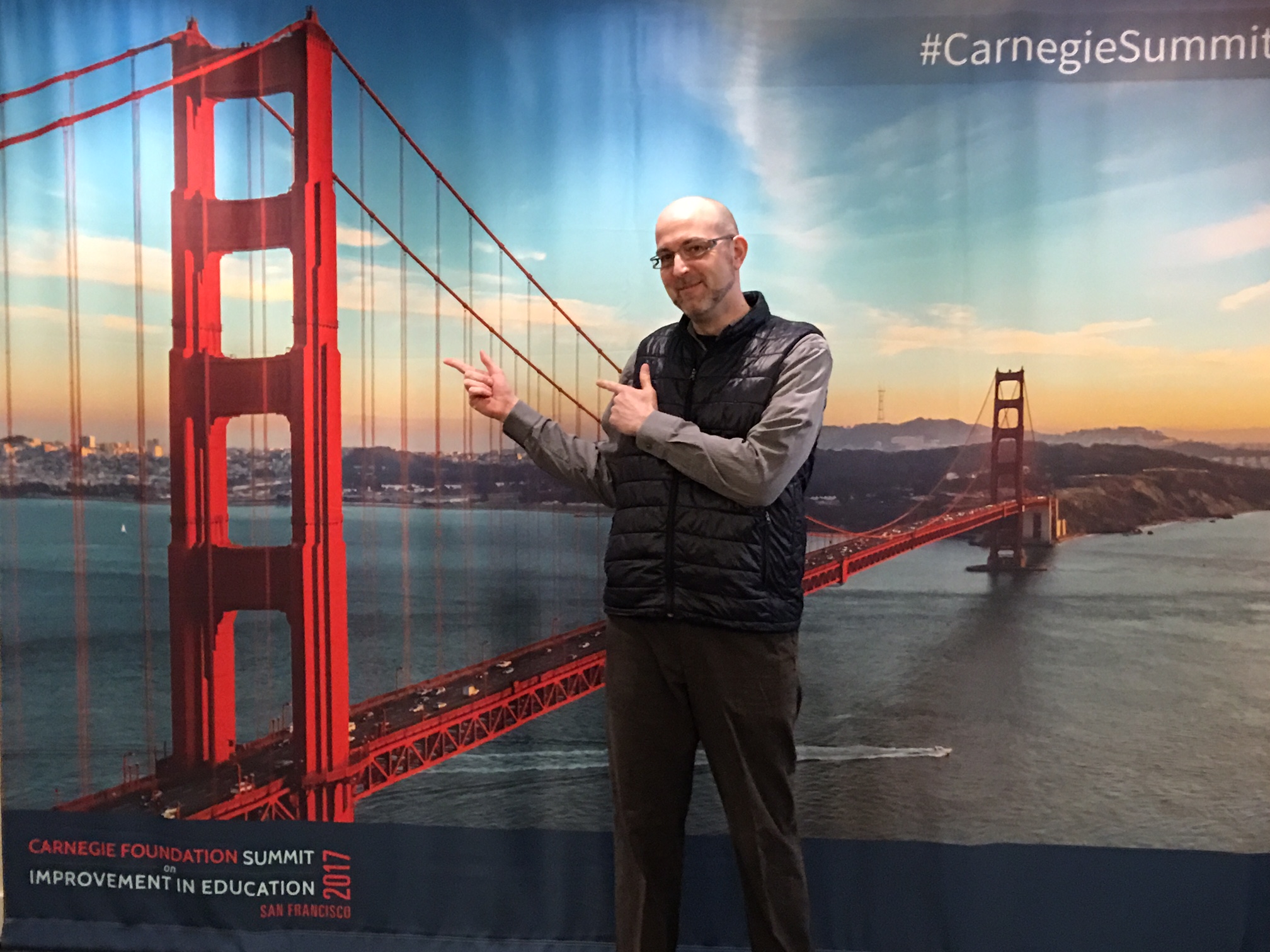
I enjoyed T. Bryk’s talk. These points resonated.
Improvement Science involves a hands-on approach to identifying systemic sources of predictable failure. This is appealing because it puts problem solving at the core, while realizing the context-specificity of what will actually work!

Day 2
Jared Bolte - Great talk! Improvement Science contrasts with traditional efficacy research by jumping right in to solve problems, instead of waiting. This raises an important question: What is the cost of delaying action to wait for efficacy findings? I am reminded of Lee Cronbach’s point: the half-life of empirical propositions is short!
This was an excellent session with Tony Bryk and John Easton. There were three important questions posed.


Day 3
Excited to Learn about PDSA cycles
